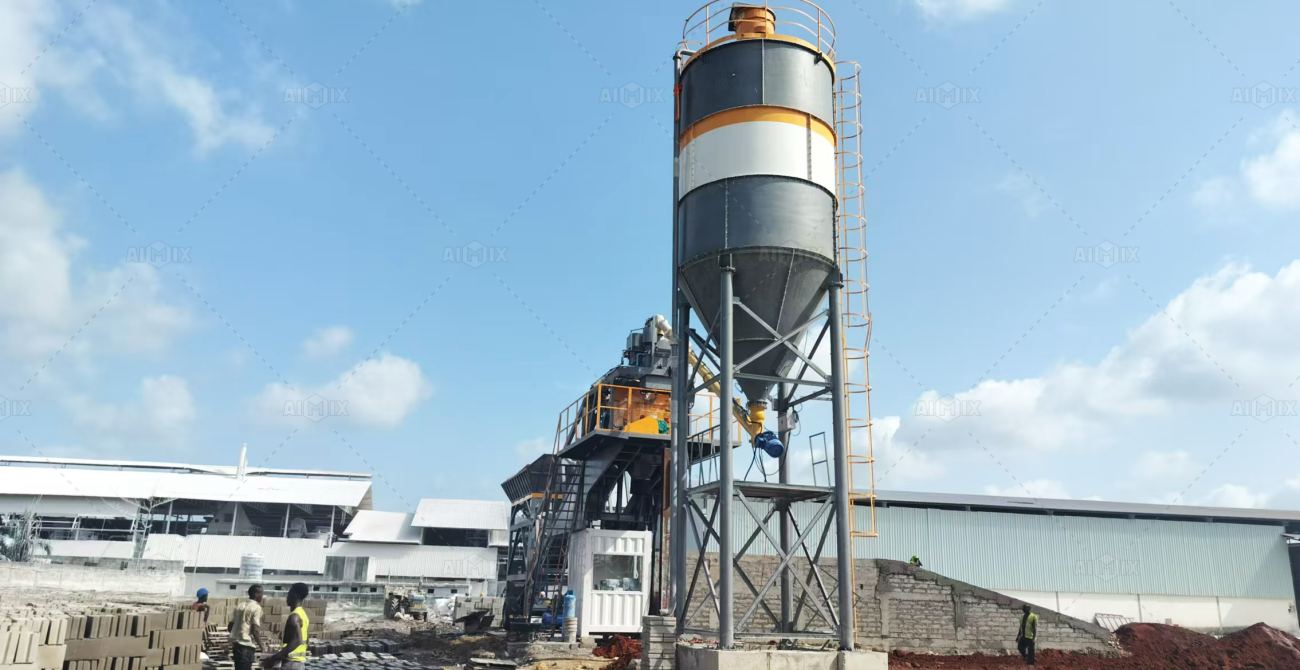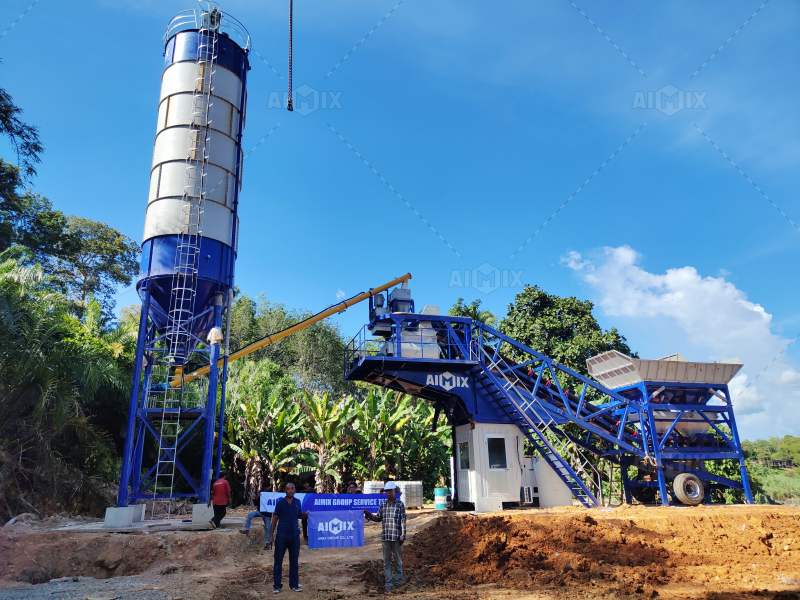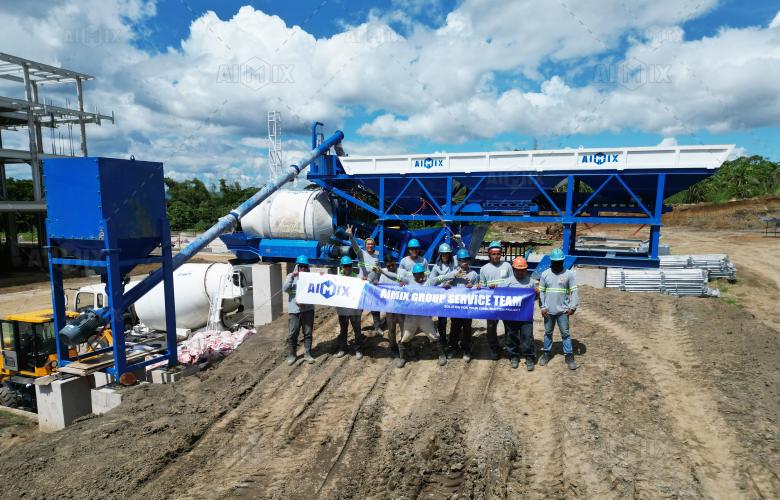Concrete production is vital to modern infrastructure, but it comes at a cost—high energy consumption and significant environmental impact. As the construction industry shifts toward sustainability, portable concrete plants for sale are increasingly equipped with innovative, energy-saving technologies. These advancements not only reduce operating costs for contractors but also support green building practices. Whether used for road construction, urban development, or remote projects, portable plants are redefining efficiency in concrete production.

The Growing Importance of Energy Efficiency
Concrete remains the most widely used construction material worldwide. Yet, the production process—particularly cement usage and mixing—has traditionally consumed large amounts of energy. With rising fuel costs, stricter environmental regulations, and growing interest in low-carbon construction, contractors are seeking equipment that balances productivity with energy conservation.
This is where suppliers of portable concrete plants for sale are making a difference. By integrating advanced energy-saving systems, they provide solutions that are mobile, reliable, and environmentally responsible. Contractors choosing between a large portable unit or a mini concrete plant can now benefit from equipment designed to maximize output while minimizing energy waste.
Optimized Mixing Technology
Mixing is the most energy-intensive part of concrete production. Traditional mixers often consume excess power due to inefficient blade design or inconsistent load handling. Modern portable plants incorporate:
-
Twin-shaft mixers with optimized blade geometry, reducing mixing time without sacrificing homogeneity.
-
Planetary mixers for specialized applications, delivering high efficiency with lower energy input.
-
Variable frequency drives (VFDs), which regulate motor speed according to load, avoiding unnecessary energy use.
These upgrades ensure that whether a contractor chooses a large-capacity plant or a mini concrete plant, energy is used more effectively per batch.
Smart Automation and Digital Controls
Automation is another key driver of energy efficiency. Today’s portable concrete plants for sale often feature programmable logic controllers (PLCs) and IoT-enabled systems. These technologies allow operators to:
-
Automate batching sequences for precise material usage.
-
Monitor energy consumption in real time.
-
Adjust water, cement, and aggregate proportions with high accuracy, reducing waste.
For smaller projects, a mini concrete plant with smart controls offers contractors the same advantages on a compact scale, ensuring that even low-volume operations remain energy-efficient.
Efficient Power Systems
Energy-saving technologies also extend to how portable plants are powered. Hybrid systems that combine grid electricity with renewable sources such as solar panels are becoming more common. Some plants are equipped with energy storage units, ensuring steady operations even in remote areas without reliable grid connections.
Contractors deploying portable plants in rural or off-grid projects, where fuel transportation is costly, find significant savings by investing in energy-efficient power setups. This makes portable concrete plants for sale with hybrid capabilities an attractive option for sustainable construction.

Recycling and Resource Management
Energy efficiency is not only about direct power consumption—it also involves how plants manage resources. Leading suppliers integrate recycling systems that handle returned concrete and wash water. By reusing materials and minimizing waste, plants indirectly save energy otherwise required for new production.
For contractors running a mini concrete plant, recycling units reduce both material and energy costs, making small-scale operations more competitive while aligning with environmental regulations.
Mobility and Reduced Transport Emissions
One of the overlooked energy-saving aspects of portable concrete plants for sale is their ability to be relocated close to project sites. Traditional stationary plants often require long-distance transportation of ready-mix concrete, leading to high fuel consumption and associated emissions.
Portable plants, on the other hand, are designed to be quickly assembled and dismantled. By producing concrete directly on-site, they cut transportation needs and reduce overall energy usage. Contractors working on highways, bridges, or remote projects benefit most, as mobility translates directly into energy savings.
Compact Solutions: The Role of Mini Concrete Plants
Not every project requires a full-scale batching facility. For small or medium-sized construction works, a mini concrete plant offers an energy-efficient alternative. These compact plants:
-
Require less power due to smaller mixers and conveyors.
-
Can be easily transported and installed with minimal site preparation.
-
Provide sufficient output for localized projects without unnecessary energy expenditure.
Suppliers are now integrating the same energy-saving technologies found in larger portable plants into mini models, ensuring that contractors at all scales can contribute to sustainable practices.
Long-Term Cost Benefits
While energy-efficient portable plants may involve higher upfront investment, the long-term benefits far outweigh the initial costs. Lower energy consumption directly reduces operating expenses. Recycling systems cut down on material costs, while automation decreases labor requirements.
Contractors evaluating portable concrete plants for sale increasingly consider lifecycle costs, not just purchase price. For smaller projects, investing in a mini concrete plant provides a balanced solution—cost-effective, mobile, and energy-efficient.
The Future of Energy-Saving Portable Plants
The push toward low-carbon construction is only accelerating. Future portable plants are expected to integrate:
-
AI-driven predictive maintenance, minimizing energy loss due to equipment wear.
-
Fully renewable energy systems for off-grid operations.
-
Advanced materials for mixers and conveyors that reduce energy needs even further.
Suppliers of portable concrete plants for sale are already adapting to these trends, ensuring that equipment not only meets today’s requirements but also aligns with tomorrow’s sustainability standards.

Conclusion
The construction industry is entering a new era where energy efficiency is as important as productivity. Suppliers of portable concrete plants for sale are responding with technologies that reduce power consumption, optimize mixing, and minimize waste. Whether investing in a large-capacity mobile unit or a compact mini concrete plant, contractors now have access to solutions that save energy, lower costs, and support green building initiatives.
By combining mobility, smart controls, recycling systems, and efficient power sources, portable plants are shaping a more sustainable future for concrete production—batch by batch, project by project.
Leave a Reply